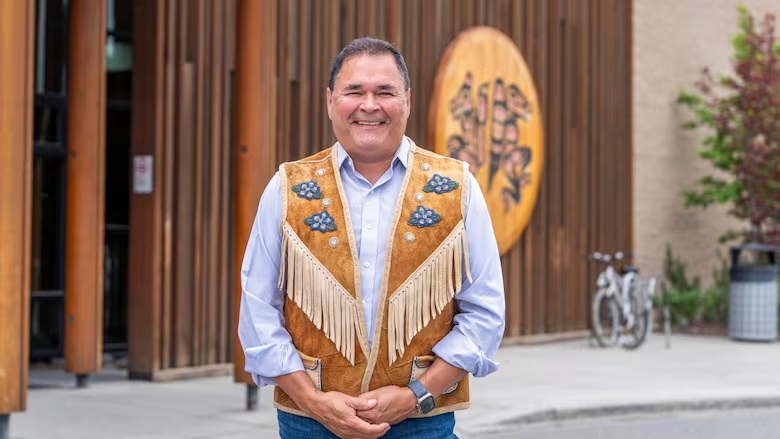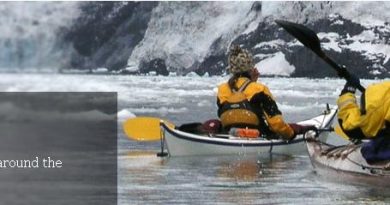Head of new Yukon health authority says Shäw Kwä’ą can help improve care

Seven people have been appointed to launch the new body
The newly appointed chair of the Yukon’s new health authority says he was motivated to join the board by his own experiences manoeuvring the health-care system.
Stephen Mills, a Vuntut Gwitchin citizen and former deputy minister, said one of his parents is in long-term care, and his son experienced mental health challenges.
“I’ve really noticed how fragmented the system can be,” Mills said. “I want to participate in improving a system … that will provide better outcomes for my children, and their children.”
In total, seven people have been appointed to launch the new health authority.
Its first governing board was chosen by the Yukon government and Chiefs Committee on Health, according to a government press release issued on Aug. 7.
The health authority, dubbed Shäw Kwä’ą, will be an arms-length organization that will manage front-line care. It will run Yukon hospitals, community health centres, continuing care and emergency medical services.
Mills co-chaired the committee that wrote the health authority’s guiding legislation, which passed the legislative assembly this past spring.
Six other board members will serve staggered terms alongside Mills, who is serving a four-year term:
- Maisie Smith, a Champagne and Aishihik citizen and clinical counsellor, will serve a four-year term.
- Edmund Tan, owner of both Shoppers Drug Mart locations in Whitehorse and chair of a territorial pharmacy advisory committee, will serve three years.
- Jill Charlie, the health director at Kwanlin Dün First Nation, will serve three years.
- Alisa Alexander, a public health expert who previously served as director for the Center of One Health Research at the University of Alaska Fairbanks, will serve two years.
- Georgina MacDonald, with the Canadian Institute for Health Information (CIHI), will serve two years.
- Inga Petri, a strategic planning consultant, will serve two years.
The health authority is tentatively slated to be fully operational in 2027.
Mills said Shäw Kwä’ą has an opportunity to fill gaps in the system, remove the silos between hospitals and health centres, and address systemic racism in health care.
“It’s not simply a change in management; it’s inviting First Nations citizens and other Yukoners into the management of the health-care system,” Mills said.
One of the board’s first tasks will be cultural safety training, Mills said. It will also create a cultural safety strategy for the health authority to follow.
Mills said he doesn’t want Yukoners to think that investing in Shäw Kwä’ą is a misdirection of resources, given the many challenges faced by the system right now.
“I think we need to recognize there’s short-term needs, but there also needs to be a long-term rethink about how we deliver health care,” Mills said.
Creating an integrated system the top priority: YMA
Yukon Medical Association president Dr. Derek Bryant said system integration will improve health outcomes.
Right now, records aren’t shared between all service providers. Someone visiting the emergency room might assume the hospital can access their past cardiology test results, when they actually can’t, Bryant explained.
“That can have real impacts on people’s health, and it’s just frustrating for patients to have to tell their story over and over again,” he said.
“If we could create an integrated health record across outpatient care settings and hospitals, that alone would have a huge impact on the care that people receive.”
However, the health authority can’t succeed without feedback from front-line care providers, Bryant said.
There aren’t any practising physicians on the board, he said, because contracted government employees are barred from joining it, so it will be the board’s job to seek out that perspective.
“I think the health authority represents an incredible opportunity to address some of the Yukon’s health-care system challenges,” Bryant said.
Related stories from around the North:
Canada: Inuvik hospital workers decry loss of weekend mental health services, emails show, The Canadian Press
United States: Senators, including Alaska’s, sound alarm on cuts impacting Indigenous health care agency, Eye on the Arctic



